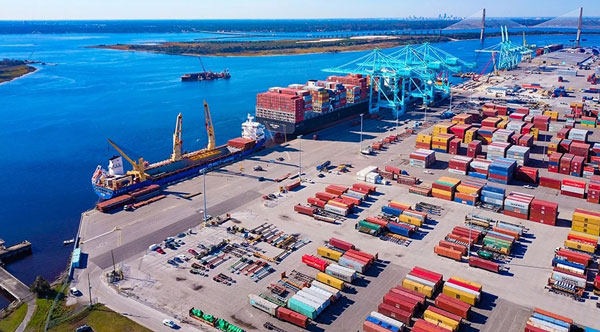1、 Definition of DDU (Delivered Duty Unpaid)
DDU (Delivered Duty Unpaid) refers to the seller's responsibility to deliver the goods to the designated location in the destination country or region as requested by the buyer, but the seller is not responsible for paying customs duties and taxes. Under DDU conditions, the seller is only responsible for delivering the goods to the buyer's designated destination, while the buyer needs to handle the relevant customs duties and taxes on their own.

The definition of DDU can be explained from the following aspects. Firstly, DDU is an international trade term used to define the responsibilities and obligations of both buyers and sellers during the delivery process. Secondly, DDU requires the seller to deliver the goods to the buyer's designated destination, but does not bear the responsibility for paying customs duties and taxes. This means that the buyer needs to handle the relevant customs duties and taxes procedures on their own and bear the corresponding costs. Finally, DDU is a delivery method suitable for international trade, which can determine the specific delivery location and conditions based on negotiations between the buyer and seller.
Under DDU conditions, the seller's main responsibility is to deliver the goods to the destination designated by the buyer. The seller is responsible for arranging transportation and providing necessary transportation documents and information to the buyer. The seller needs to ensure the safety and integrity of the goods during the delivery process, while bearing the risks and losses during the transportation of the goods. However, the seller is not responsible for paying customs duties and taxes, which is the responsibility of the buyer.
The definition of DDU reflects the cooperation and division of labor between buyers and sellers in international trade. The seller fulfilled the buyer's demand for the goods by delivering them to the destination specified by the buyer. The buyer needs to handle customs duties and taxes on their own to ensure that the goods enter the destination country or region legally. The DDU condition applies to situations where both the buyer and the seller have clear requirements for the delivery location, and also applies to situations where both parties have a clear agreement on the responsibility for paying tariffs and taxes.
2、 Characteristics of DDU
The characteristics of DDU (Delivered Duty Unpaid) mainly include the following aspects.
Firstly, DDU refers to the seller delivering the goods to the buyer, but the seller is not responsible for paying customs duties. This means that the buyer needs to bear the payment obligation of import tariffs on their own. Compared to other trade terms, DDU is more convenient for buyers as they can arrange tariff payment methods more flexibly to reduce costs.
Secondly, the transportation responsibility sharing of DDU is for the seller to bear the transportation costs and risks from the origin to the destination. The seller is responsible for delivering the goods to the designated destination and bearing the relevant transportation costs, including transportation, loading and unloading, packaging, and other expenses. Meanwhile, the seller also needs to bear the risks during the transportation of the goods, such as damage or loss of the goods.
In addition, the advantage of DDU is that it can reduce the burden on buyers. The buyer does not need to pay customs duties, which can save money. At the same time, the seller is responsible for the transportation of the goods, reducing the buyer's transportation risks and costs. In addition, DDU can also improve delivery efficiency, allowing goods to arrive at their destination more quickly.
DDU is suitable for some complex trade scenarios, such as cross-border trade involving multiple countries or trade involving tariff payment issues. In addition, DDU is also applicable when the buyer wishes to reduce tariff costs.